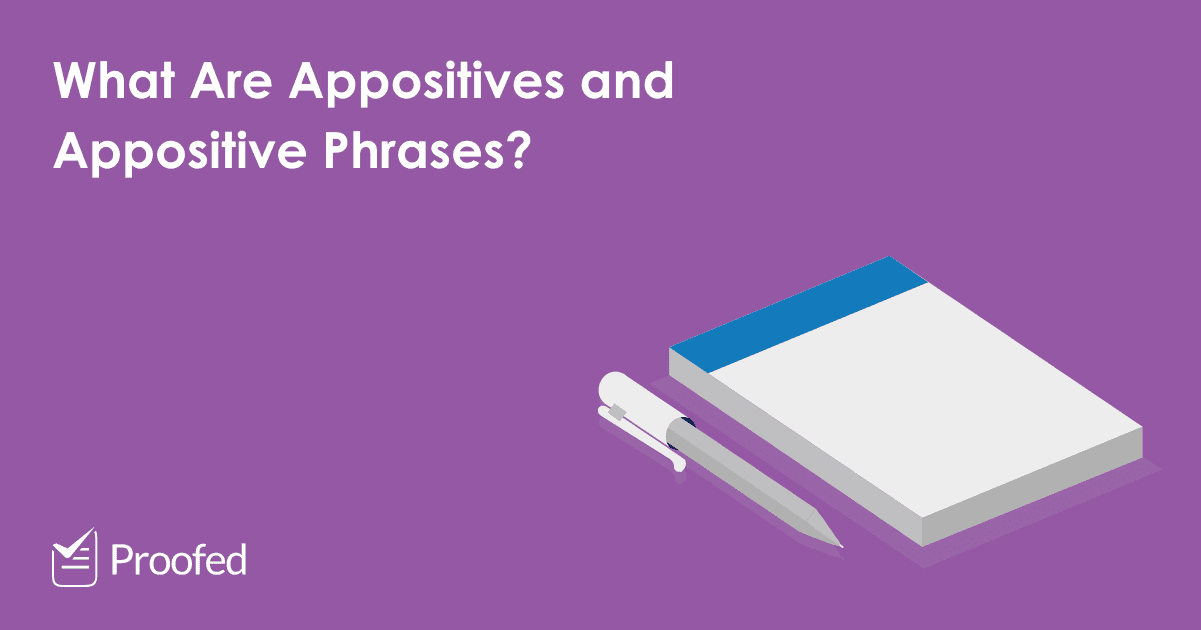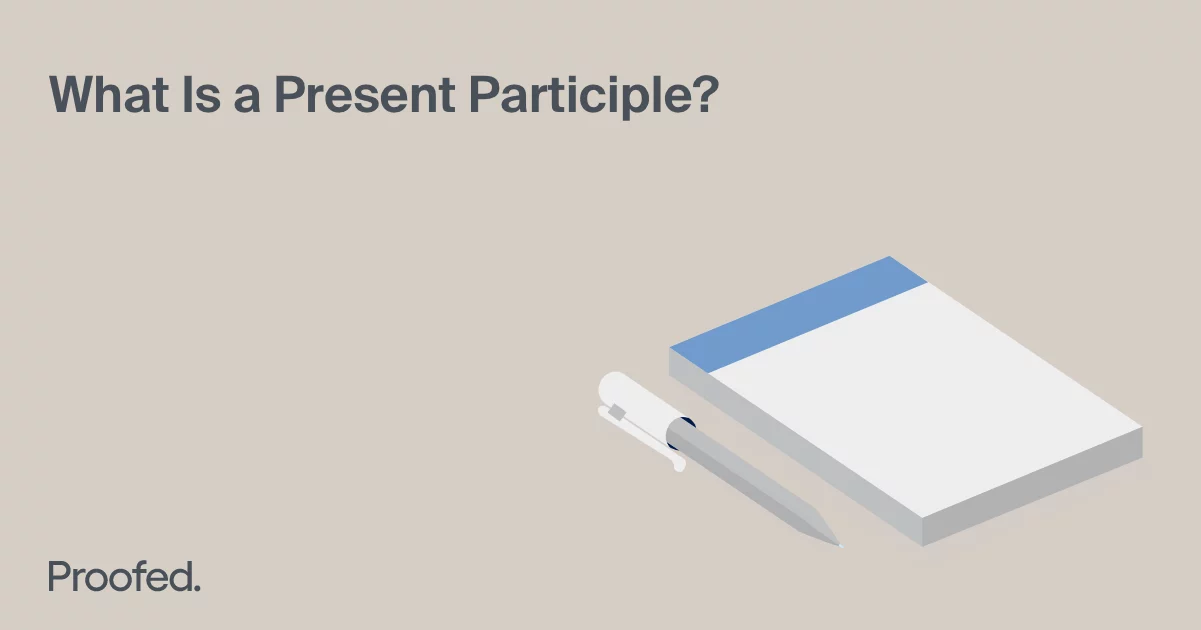Results for “grammar”
Search

4-minute read
Grammar Tips: Appositives and Appositive Phrases
...noun they modify. If you could remove an appositive without changing the meaning of a sentence, it should be set apart with commas, dashes, or brackets. And don’t forget that our expert editors and proofreaders are always happy to check your punctuation, grammar, or any other aspect of your writing....

3-minute read
Grammar Tips: What Is a Present Participle?
Present participles are a key part of English grammar. But what exactly is a present participle? And when do you need one? In this post, we’ll explain the basics. What Is a Present Participle? Present participles are a type of verb. Most are formed by adding “-ing” the end of...

3-minute read
Grammar Tips: Can I Start a Sentence with the Word “But”?
...up whether to use “but” at the beginning of a sentence, check to see if you need to adhere to a particular style guide. Style guides are used in the publishing world to set standards for grammar, punctuation, and spelling. Your style guide may specify that sentences shouldn’t begin with...

3-minute read
Grammar Tips: Not Only… But Also
...could each stand alone as a sentence, they should be separated by a comma. Summary: Not Only… But Also We hope you now feel confident about using not only… but also in your writing. For more grammar tips, check out our blog. And if you’d like an expert to check...

3-minute read
Grammar Tips: What’s a Postmodifier?
...into the road this morning.” Takeaway There are several types of postmodifiers you can use to add more information and detail to your sentences. If you’re struggling with postmodifiers or any other English grammar, check out Proofed’s Writing Tips Blog, and if you still need help with your writing and...

3-minute read
Grammar Tips: How to Use Neither/Either and Nor/Or Correctly
...“or” are their positive counterparts. “Neither” and “either” are usually used before a noun or noun phrase or in place of a noun themselves, while “nor” and “or” are always placed between two nouns or statements. If you need help with your word choice, grammar, spelling, or anything in between,...

4-minute read
Simple Grammar: What Do We Mean by “Parenthesis”?
...meaning or grammar of the sentence. In this blog post, we’ll focus on how to use parentheses for parenthetical comments in your writing. (Say that five times, as fast as you can!) Depending on your goals, you might use either round brackets (called parentheses), commas, or em dashes. For example,...

3-minute read
Grammar Tips: Prepositions
...about the whole thing. What are those people protesting about? Conclusion There are many prepositions in English. Some have clear rules, and others may need memorizing if you want to use them correctly. If you’re struggling with English grammar in your writing, check out our Common ESL Writing Errors guide....

3-minute read
Grammar Tips: Adverbs
...for issues with spelling, grammar, punctuation, word choice, and more, our editors are happy to help! You can even get 500 words proofread for free. FAQs What’s the difference between adverbs and adjectives? Adjectives only modify or describe nouns, while adverbs can modify all other parts of a sentence. Do...

4-minute read
Grammar Tips: Superlatives
...the superlative by using the est suffix or by placing most or least before a word. However, some irregular superlatives occur, so be sure to check a dictionary when you’re unsure. And you can always have one of our editors check your writing for grammar, spelling, punctuation, and more! Try...

4-minute read
Grammar Tips: Intransitive Verbs
...verb is or isn’t transitive or intransitive, ask yourself a simple question: Can a noun, pronoun, or noun phrase follow this verb? If yes, then it’s a transitive verb. If not, then it’s intransitive. If yes and no, then it’s both! Need help using intransitive verbs or other English grammar...

3-minute read
Grammar Tips: Dangling and Misplaced Modifiers
In the grammar world, positioning is everything. The wrong word in the wrong place can change the entire meaning of a sentence. As such, correct placement of modifiers is crucial. These ‘modifiers’ are words and phrases that affect the meaning of another part of a sentence. Using them correctly can...




